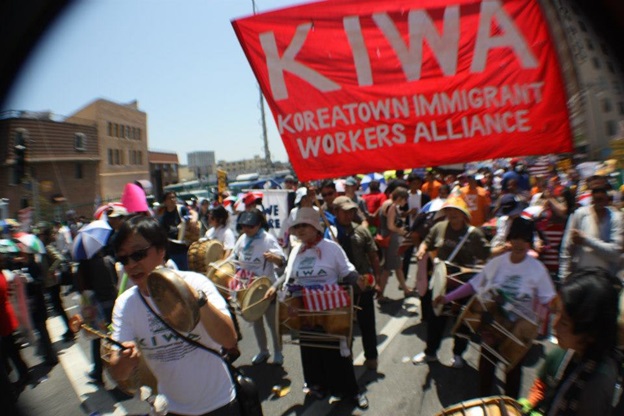It seems to be obvious: an increase in minimum wage will benefit the lives of the US workers who partake in the market and capitalist economy and also promote equality. However, that is only the sugar-coated view that us citizens look upon as there is a different reality behind the facade.
Let’s talk about the pros and cons as we journey into the controversy of minimum wage in the United States. As of July 2019, the minimum wage has increased to a total of $13.25 per hour for companies with 26 or less employees, and $14.25 for more than 26 employees. This increase in minimum wage, of course, offers the benefit of raising the standard of living for impoverished workers. Additionally, increasingly more revenue for the government would be generated from payroll taxes for social security.

[Source: kiwa.org, Screenshot by Author, Timothy Lee]
However, there are also flaws within the working environment as a result of this wage increase. First, there would be a significant increase in layoffs and slower hiring. The wage increase would be incompatible with smaller companies and will result in ultimate bankruptcy in trying to provide the needs of this growing minimum wage. An increase in minimum wage will also encourage as well as provide the incentive to an employer to replace human workers with efficient machinery, ultimately adding to unemployment.
In addition, an increase in minimum wage can indubiously add to the percentage of high school dropouts. High schoolers will be less motivated to study and will be further content with the amount paid for minimum wage working jobs. In contrast, if the minimum wage was lower, high schoolers would be more motivated to work hard in school and pursue higher education. High schoolers or adolescents may be satisfied with the increasing minimum wage and therefore also add to unemployment.

[Source: Associated Press/Seth Perlman]
There are also some instances when these laws are undermined and disregarded. While minimum wage standards are established, many companies are paying under the minimum wage. These companies usually take advantage of immigrants, who don’t possess the linguistic skills and are not well adapted to the United States’ economy.
KIWA (Koreatown Immigrant Workers Alliance) works to resolve the issues of immigration discrimination and bring a diverse group of people into a coalition. Jose Ramirez, a representative of KIWA, says that the immigration workers are often mistreated and work in unsanitary conditions that leave the human body vulnerable to disease. Employers often ignore the minimum wage standard and employ according to their own applicable desires.
All in all, the controversy regarding minimum wage is yet to be resolved. US citizens may all have different opinions on minimum wage, but we cannot neglect the reality behind the curtains.
Timothy Lee, Grade 11
Larchmont Charter School

